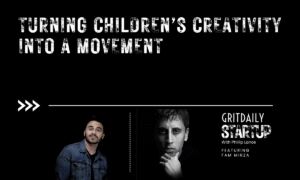In this episode of Startup Show, host John Biggs sat down with Torrey Leonard, CEO of Thoughtly, to delve into the transformative potential of AI in enhancing call center operations. Leonards company, Thoughtly, is ushering in a new wave in customer service by employing artificial intelligence agents capable of handling both inbound and outbound calls with an efficiency and effectiveness that rival human agents.
During the conversation, Leonard discussed what makes Thoughtly stand out in the world of AI technology. He highlighted three fundamental components that constitute their service: the brain, the voice, and what Thoughtly uniquely brings to the table — the hands and fingers of AI operations.
While most platforms utilize similar AI and voice models, such as GPT-4.0 and voices from 11 Labs, Thoughtly integrates robust, practical functionalities that perform tasks during, before, and after calls.
This integration allows Thoughtly’s AI agents to execute mid-call actions, such as API requests, and interact with various customer relationship management systems like Salesforce and HubSpot. This capability is crucial for modern businesses that rely heavily on dynamic and interactive customer service processes.
Due to the unique system, Thoughtly’s AI agents can handle complex customer interactions. For instance, if a customer calls with a query about their account, the AI can instantly access relevant data, provide real-time updates on issues like account balances or service outages, and even engage in more nuanced conversations that might be necessary for vetting potential investors or discussing detailed policy information.
A key innovation in Thoughtly’s approach is its ability to learn and adapt from existing customer service interactions. Companies can feed their historical call data into Thoughtly’s system, enabling the AI to craft responses that mirror the proven effectiveness of human agents. Moreover, Thoughtly allows customization of AI behaviors through scripting and feedback, ensuring that the AI interactions remain aligned with the company’s customer service ethos.
One of the most significant advancements discussed was the ability of Thoughtly’s AI to not only understand and process customer queries but also to perform follow-up actions that would typically require human intervention. This includes scheduling appointments or updating records, thereby streamlining operations and allowing human agents to focus on more complex and sensitive customer interactions.
Of course, the integration of AI into the customer service industry and places like call centers raises questions about the future of human labor in the sector. Leonard suggests that AI will not replace humans but rather augment existing functions, allowing human agents to focus on higher-level tasks. This shift could lead to more fulfilling roles and responsibilities for call center employees, moving away from repetitive tasks to roles that require more critical thinking and personal interaction.
Remaining optimistic about the acceptance of AI agents in customer service roles, Leonard noted the rapid advancements in AI speech synthesis and processing that make interactions increasingly natural and human-like. He envisions a future where AI agents are an integral part of customer service teams, enhancing the customer experience while streamlining operations.








